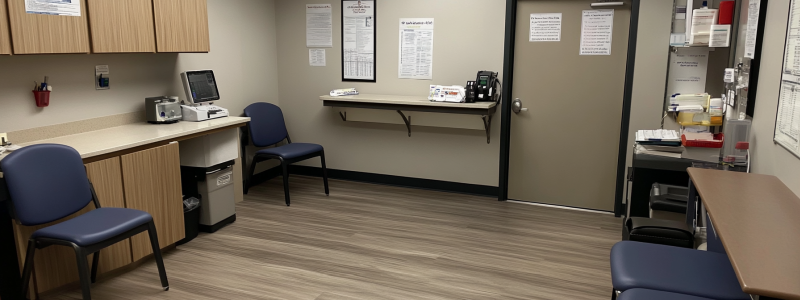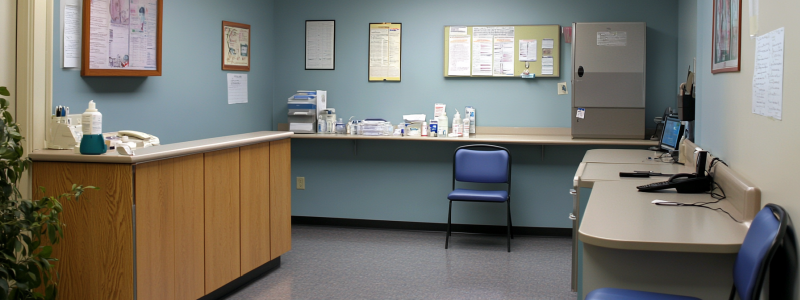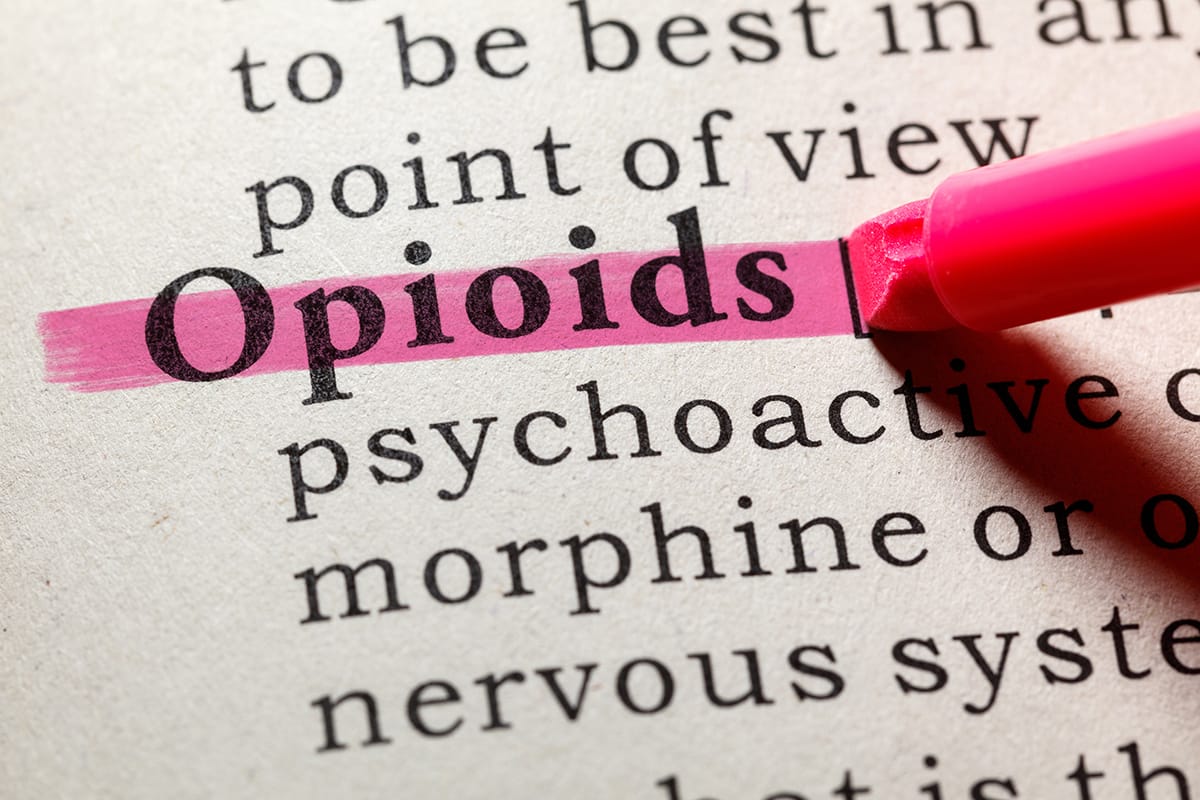Medication Assisted Treatment (MAT) has emerged as a game-changer in the battle against substance use disorders, offering a lifeline to those struggling with opioid and alcohol addiction. But what are the benefits of Medication Assisted Treatment that make it so effective? For instance, individuals who engage in MAT for opioid use disorder are up to 50% less likely to experience a fatal overdose compared to those who undergo detoxification alone.
At Colorado Medication Assisted Recovery, we believe that every individual’s journey to recovery is unique. That’s why we integrate MAT into our holistic treatment programs, ensuring that each person receives the personalized care they need to reclaim their lives from addiction. Whether you or a loved one are considering treatment, understanding the benefits of MAT could be the first step towards a healthier, more fulfilling future.
Brief Recap: How Medication-Assisted Treatment Works
What exactly is MAT, and why has it become such a pivotal component of addiction treatment? At its core, MAT is an evidence-based approach that combines the use of FDA-approved medications with counseling and behavioral therapies to address the complex nature of substance use disorders. Unlike traditional methods that rely solely on abstinence, MAT acknowledges the biological and psychological facets of addiction, offering a more comprehensive and compassionate path to recovery.
Types of Medications Used in MAT
Opioid Use Disorder:
- Buprenorphine: A partial opioid agonist, Buprenorphine offers similar benefits to Methadone but with a lower potential for misuse. It helps individuals manage withdrawal symptoms and reduces cravings, making it easier to focus on recovery.
- Naltrexone: Unlike Methadone and Buprenorphine, Naltrexone is an opioid antagonist, meaning it blocks opioid receptors in the brain. This prevents the euphoric effects of opioids, making it an effective tool in preventing relapse for individuals who have already detoxed from opioids.
Alcohol Use Disorder:
- Disulfiram: Disulfiram works by creating a highly unpleasant reaction when alcohol is consumed, including symptoms such as nausea, vomiting, and headache. This deterrent effect helps individuals resist the urge to drink.
- Naltrexone: Naltrexone is also used for alcohol use disorder by blocking the rewarding effects of alcohol. This reduces the urge to drink and supports long-term abstinence.
Individualized Treatment Plans
At Colorado Medication Assisted Recovery, we understand that each person’s path to recovery is unlike any other. We prioritize crafting treatment plans that cater to the unique needs of every patient. These plans consider factors such as their medical background, the complexity of their addiction, and any concurrent mental health issues. Through personalized treatment, we aim to provide each individual with the best-suited blend of medication and therapy to aid their recovery.
Benefits of Medication-Assisted Treatment
Recognizing what are the benefits of Medication Assisted Treatment (MAT) is crucial for individuals facing challenges with substance use disorders, especially those tied to opioid and alcohol dependencies. By integrating medication with behavioral therapies, MAT offers a holistic approach that greatly improves the possibility of attaining and sustaining long-term recovery. Here are some of the most important benefits:
1. Reduction in Overdose Risk
One of the most significant benefits of MAT is its ability to reduce the risk of overdose. For individuals with opioid use disorder, medications like Methadone and Buprenorphine help stabilize brain chemistry and reduce cravings, which can lower the likelihood of a fatal overdose. Naltrexone, by blocking the effects of opioids, also plays a crucial role in preventing relapse and subsequent overdoses. This reduction in overdose risk is a critical factor in improving overall survival rates among those battling opioid addiction.
For instance, a study published by the National Institute on Drug Abuse (NIDA) found that individuals receiving Buprenorphine as part of MAT were up to 50% less likely to die from an opioid overdose compared to those who were not receiving MAT. This significant reduction in overdose risk is primarily due to the way these medications stabilize brain chemistry and manage withdrawal symptoms, which in turn reduces the compulsion to misuse opioids.
Further supporting this, the World Health Organization (WHO) has recognized MAT, specifically with Methadone and Buprenorphine, as an essential strategy in combating opioid overdoses globally. According to WHO, these medications not only reduce the risk of overdose but also enhance retention in treatment programs, which is critical for long-term recovery
Moreover, The Substance Abuse and Mental Health Services Administration (SAMHSA) highlights that Naltrexone, another medication used in MAT, effectively blocks the effects of opioids, making it impossible for individuals to experience the euphoria associated with opioid misuse. This blocking effect is a powerful deterrent against relapse, which in turn reduces the likelihood of overdose.
2. Improved Retention in Treatment
One of the key benefits of Medication Assisted Treatment (MAT) is its ability to improve retention in treatment programs. Retention is essential for successful recovery, as longer engagement in treatment is strongly correlated with better long-term outcomes.
A study published in the Journal of Substance Abuse Treatment found that individuals who were prescribed medications as part of their MAT were more likely to remain in treatment compared to those who did not receive these medications. The study noted that patients on MAT were significantly less likely to drop out of treatment, which is a critical factor in achieving sustained recovery.
Additionally, research from the American Journal of Public Health indicates that MAT not only improves retention but also enhances overall treatment effectiveness. The study highlighted that retention rates for individuals receiving MAT are higher because the medications help manage withdrawal symptoms and reduce cravings, making it easier for patients to focus on their recovery goals without the constant distraction of physical discomfort.
3. Better Long-Term Outcomes
Medication Assisted Treatment (MAT) is widely recognized for its effectiveness in improving long-term outcomes for individuals struggling with opioid and alcohol use disorders. A study published in The New England Journal of Medicine found that individuals receiving MAT had significantly better long-term outcomes compared to those who did not receive MAT. The study highlighted that MAT not only reduces the risk of relapse but also improves overall health, social functioning, and quality of life over the long term.
The National Institute on Drug Abuse (NIDA) also emphasizes the importance of MAT in achieving better long-term outcomes. According to NIDA, MAT not only helps stabilize brain function but also allows individuals to focus on rebuilding their lives, making it easier to reintegrate into society, maintain employment, and restore relationships. NIDA’s research indicates that when MAT is combined with counseling and behavioral therapies, the likelihood of achieving and sustaining long-term recovery increases significantly .
4. Enhanced Quality of Life
Medication Assisted Treatment (MAT) not only helps individuals overcome substance use disorders but also significantly improves their overall quality of life. By managing withdrawal symptoms and reducing cravings, MAT allows individuals to regain control over their lives and engage more fully in daily activities, work, and relationships.
A study published in the Journal of Substance Abuse Treatment found that individuals receiving MAT reported significant improvements in their quality of life, including better physical health, mental well-being, and social functioning. The study highlighted that MAT helps individuals stabilize their lives by reducing the chaos and health complications associated with active substance use.
Additionally, research from the American Journal of Psychiatry demonstrated that individuals in MAT programs experienced notable enhancements in their emotional and psychological well-being. These improvements were largely attributed to the reduction in substance use, which allowed patients to focus on personal growth, rebuilding relationships, and pursuing meaningful activities without the constant burden of addiction.
The World Health Organization (WHO) also recognizes the impact of MAT on quality of life. WHO reports that individuals receiving MAT are more likely to maintain employment, restore family and social relationships, and achieve overall life satisfaction compared to those who do not receive treatment. MAT’s ability to alleviate the physical and psychological distress caused by substance use disorders plays a critical role in these positive life changes.
Addressing Common Misconceptions about MAT
Medication Assisted Treatment (MAT) can be a life-changing part of recovery, but it’s common to have concerns or misunderstandings about how it works. Addressing these concerns is essential to making informed decisions about your treatment journey.
Is MAT Just Replacing One Addiction with Another?
One of the most prevalent misconceptions about MAT is the belief that it simply substitutes one addiction for another. This misunderstanding arises from the fact that medications like Buprenorphine are opioids, leading some to think they perpetuate dependency. However, this view overlooks the significant differences between medically supervised MAT and substance misuse.
According to the Substance Abuse and Mental Health Services Administration (SAMHSA), the goal of MAT is not to replace one addiction with another but to stabilize the individual, enabling them to engage in therapy and other supportive treatments. These medications are carefully prescribed and monitored by healthcare professionals to ensure safe and effective use. Additionally, medications like Buprenorphine have a “ceiling effect,” meaning their opioid effects plateau at a certain dose, reducing the risk of misuse and dependency.
How Long Will I Need to Be on MAT?
Another common concern is the duration of MAT. Many people wonder how long they will need to remain on these medications and whether they will ever be able to stop taking them. The duration of MAT varies depending on the individual and their specific needs. Some may require MAT for a few months, while others may benefit from long-term treatment.
The National Institute on Drug Abuse (NIDA) emphasizes that there is no one-size-fits-all answer to how long someone should stay on MAT. For some, discontinuing medication after a certain period is possible, while others may need to continue MAT for years to maintain recovery. The decision to taper off or continue MAT should be made collaboratively between the patient and their healthcare provider, based on progress in recovery and individual circumstances.
Are There Side Effects?
Like any medication, MAT can have side effects, and understanding these is important for those considering this treatment. Common side effects include nausea, constipation, and drowsiness, though these often diminish as the body adjusts to the medication. Naltrexone, on the other hand, can cause symptoms such as headaches, dizziness, and fatigue.
However, according to the American Society of Addiction Medicine (ASAM), the benefits of MAT far outweigh the potential side effects, especially when used under medical supervision. The risk of overdose, for example, is significantly reduced when MAT is part of a comprehensive treatment plan, making it a safer option than untreated addiction.
With these concerns in mind, let’s now look at some practical questions about how MAT can fit into your recovery.
Frequently Asked Questions about MAT
When considering Medication Assisted Treatment (MAT), it’s natural to have questions about how it works and what to expect. Below are answers to some of the most frequently asked questions, providing clarity and helping you make informed decisions about your treatment.
Is MAT Covered by Insurance?
Yes, Medication Assisted Treatment (MAT) is covered by most insurance plans, including Medicaid and Medicare. The Affordable Care Act (ACA) requires insurance providers to offer coverage for substance use disorder treatment, which includes MAT. However, the specifics of coverage can vary depending on your state and the particular insurance plan.
At Colorado Medication Assisted Recovery, we understand that navigating insurance coverage can be challenging. That’s why we offer an Insurance Verification service to help you determine your coverage options. By verifying your insurance with us, you can gain clarity on what treatments are covered, including MAT, and receive guidance on the next steps.
Can MAT Be Used with Other Treatments?
Absolutely. MAT is most effective when combined with counseling and behavioral therapies. While MAT addresses the physical aspects of addiction, counseling and behavioral therapies tackle the psychological and emotional challenges, providing a more comprehensive treatment approach. This integrated method helps individuals develop the skills needed to maintain long-term sobriety and improve overall well-being.
What If MAT Doesn’t Work for Me?
MAT is a highly effective treatment, but like any medical intervention, it may not work for everyone in the same way. If one medication or approach isn’t working as expected, it doesn’t mean that MAT won’t work at all; it might just require adjustments. For example, some individuals may respond better to one medication over another. It’s crucial to work closely with a healthcare provider to tailor the treatment plan to your specific needs. Switching medications or adjusting dosages can often lead to better outcomes.
MAT as a Path to Recovery with CMAR
Medication Assisted Treatment (MAT) offers a transformative approach to overcoming substance use disorders, especially for those facing opioid and alcohol dependencies. As highlighted in this article, MAT provides several key benefits:
- Reduced Risk of Overdose: MAT medications like Methadone and Buprenorphine help stabilize brain chemistry, significantly lowering the risk of fatal overdoses.
- Improved Retention in Treatment: Individuals on MAT are more likely to stay engaged in their treatment programs, leading to better long-term outcomes.
- Better Long-Term Outcomes: MAT supports sustained recovery by reducing cravings, preventing relapse, and allowing individuals to rebuild their lives.
- Enhanced Quality of Life: By managing withdrawal symptoms and reducing substance use, MAT helps individuals regain control over their lives and improve their overall well-being.
At Colorado Medication Assisted Recovery, we’re dedicated to helping you or your loved ones achieve lasting recovery. Our holistic approach, which highlights what are the benefits of Medication Assisted Treatment (MAT), integrates MAT with counseling and behavioral therapies, ensuring that each person receives the care and support they need.
Next Steps:
Taking the first step towards treatment can be a difficult but important decision. We are here to support you and help you move towards a healthier, more fulfilling future.

































